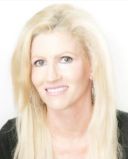Post-Traumatic Stress Disorder
The Body Remembers
From PTSD to the physical spark of romance, our bodies never forget.
Posted June 8, 2018
In 2014 after an anguishing split from my husband, I reunited with my college boyfriend, the man I dated 30 years earlier at UC Berkeley.
Whenever I share this story, people eat it up. “Awwwww!” they coo, all grins, “That’s so sweet. How’d you reconnect –Facebook?”
“No actually,” I say, “The sexual predator who assaulted me when I was a sophomore.”
Smiles evaporate, faces morph into horror as they gasp, “Whhhaat?”
I believe in honesty. But candor often makes others uncomfortable, triggers too many awkward pauses, prompts the frank and probing questions I don’t always wish to answer.
And so I simply stopped telling the truth about how John and I rekindled the relationship we shared so long ago.
On a summer night in 1984 I left my uniformed patrol job as an aide for the University of California Police Department and walked home alone in darkness. At the threshold of my building I was assaulted by a man with a knife.
I was lucky. After a soul-chilling struggle, I got away, stumbled inside my apartment and dialed 911 with trembling hands. I stood silent as the operator put out the call describing my assailant and direction of flight. Her words repeating my words. I knew they would sound over every radio of every police officer on duty in the city of Berkeley—that they would be heard by John in the UC Police Department dispatch center where I stood 25 minutes earlier. When I left the station I stopped by dispatch to say goodnight to John, badge number 159, another UCPD aide, my boyfriend of four months.
John was one of the most senior aides and he caught my eye in my first week at the department—caustically funny, sauntering through the station like he owned it, seemingly fearless. I noticed his dimples, his dark sparkling eyes, the tuft of chest hair curling from the neck of his uniform. I wasn’t just attracted to John, I admired him. John was smart, relentlessly ambitious, and this drive rubbed off on me. He made me want to be a better aide, motivating me to get my grades up and look ahead to the possibility of law school. Not only were we colleagues, John and I shared similar blue-collar backgrounds. But mostly, we both shared a desire to abandon the people we had been to become something great.
Though I managed to escape my assault physically unharmed, it marked the blistering start to my unraveling. I didn’t know that trauma lives on inside of you, black and heavy, even when you desperately want to forget and feel normal again. The experience of the attack percolated someplace deep and unknown, even as I pushed away offers of help, insisting I was fine. It terrified me how infirm I felt, like I could lose myself at any moment—a state that left me so lonely I feared my skin wouldn’t contain me. The sound of silence devoured me, opening up inside me like a wound. I felt it rising up, consuming me, even as I fought to press it down. As the evening hours passed I felt myself floating away, vanishing, drifting to a place where I had lost all control. In the reflection of my apartment windows I saw my own face, staring, the face unrecognizable. Outside those windows, night taunted. I might hold anything, the darkness said.
Because I couldn’t stand to be alone, I clung to John, gripping so hard I strangled him with my need. Still, we managed to hang on. We loved one another through three more years, graduation, and a move to Washington, D.C. for post-graduation internships. We broke up when I moved back to California to start law school.
The night I walked home from work in darkness, tired and wrung out—the same night a man turned into my hallway, our eyes locked and he showed me his knife—this is the night that still possessed my body 30 years later.
In 2014, I learned some shocking things about my attacker. After assaulting me he went on to a lengthy career as sexual predator and monster, and due to this criminal history and the particularly lurid facts of his attack of the young woman who would be his final victim, he was now serving the rest of his life in prison.
I began my first attempt at writing about what he did to me, about the PTSD I still suffer from whenever I hear footsteps behind me, about how the body remembers.
John and I reconnected in 2014 by way of most things in life: pure chance. As I found myself packing to leave my husband, I caressed the cardboard box at my side, feeling the friction of the corrugated edge of the lid beneath my fingertips, and I sat down on the carpeted stairs leading to the bedroom that would soon no longer be mine. I looked at the scene around me as if seeing it for the first time: half-filled cartons, paintings pulled from walls, rolls of bubble wrap unraveling. A scene of chaos, a scene of breaking apart.
That’s when I got the email from John. He was going to be in Southern California for work. “Do you want to meet for dinner?” he asked. John and I stayed in touch sporadically, and I knew little about his current life. I knew he never left Washington, that he worked for a popular Democratic senator, attended Georgetown Law School and joined a prestigious law firm. I knew of his professional success. I knew he had an ex-wife, kids, and a dog.
I didn’t want to go. And yet I said yes to dinner despite the lousy timing. I had just moved out and my heart was scraped raw. I said yes not for the comfort of an old friend or for any hope of romance, but for one reason only: to explore this person’s memory. I craved new insight to that distant time in 1984 about which I’d become obsessed. What did John remember of that summer 30 years ago?
Five days later I walked to a restaurant to meet John. Still half-crazed from the recent emotional tsunami, my anxiety was through the roof. My jaw clenched so tight my throat constricted, so when I tried to force myself to eat I gagged on anything I attempted to chew. I hadn’t consumed more than a thousand calories the previous week and I felt starved, woozy with unease. I arrived first, ordered a glass of wine, and as I raised the glass to my lips felt grateful that my hands were not shaking.
John walked in and we hugged hello. As he settled beside me I noticed the top button of his shirt was open, allowing a glimpse of that patch of chest hair I knew so well but forgot until that moment. Something unexpected rippled inside, a hint of some ancient spark, and I couldn’t help but smile, astounded once again by what the body remembers.
Suddenly I felt ravenous. Arugula, parmesan and bread filled me, while beef carpaccio infused my blood with iron. It made me feel whole again. In a feverish blur of words, I told John all I’d discovered about the deadly intent of my assailant. He swallowed, shaking his head in silence. When he finally spoke all he could say was, “Holy hell.” He still remembered the voice of the Berkeley police dispatcher putting out the call of attempted rape, assault with a deadly weapon, then hearing the location and feeling the ice-cold comprehension that the voice on the radio was talking about me.
John and I rekindled a friendship. It was comforting to text him the following month when I returned to Berkeley on the 30th anniversary of my assault. I went back to dig deeper into everything that happened that summer. I retraced my steps home that night. I returned to the threshold where my assailant grabbed me. I went in the name of research for my book, but also to reclaim my own power.
Shortly after my Berkeley anniversary visit I continued to mourn the end of my marriage after learning my husband had already begun a new relationship. Him moving on so quickly triggered the heartbreaking loss of our love all over again. During my new time of anguish, John returned to San Diego and we had dinner again. I was such a mess I couldn’t help myself from crying at the restaurant.
Hot, right?
But through the course of the evening John managed to guide me out of my funk. Suitably cheered, he walked me home and at the lobby to my building, in a gesture worthy of Hollywood, placed his palms on each side of my face and pulled me in for a single heart-stopping kiss.
Because I had that first dinner with John—a dinner I would never have bothered with were it not for my assailant—a relationship formed that has changed the course of my life. John helped me overcome the end of a marriage, he showed me I could love again, and he provided support of all kinds to help me stabilize again. A good portion of the book that grew from my time at Berkeley, from my emotional excavation, was written in his home, in the beautiful writing room he helped create for me.
John and I are working on our happily ever after. We’re now two middle-aged people, each set in our ways, each with our own uniquely beautiful flaws –it’s not without its challenges.
But taking emotional risk, saying to yourself, “I don’t know what will happen but I trust myself, I trust my partner, and I know we can navigate whatever challenges arise,” is a sign of strength and being at peace.
At least that’s what I’ve come to believe.




